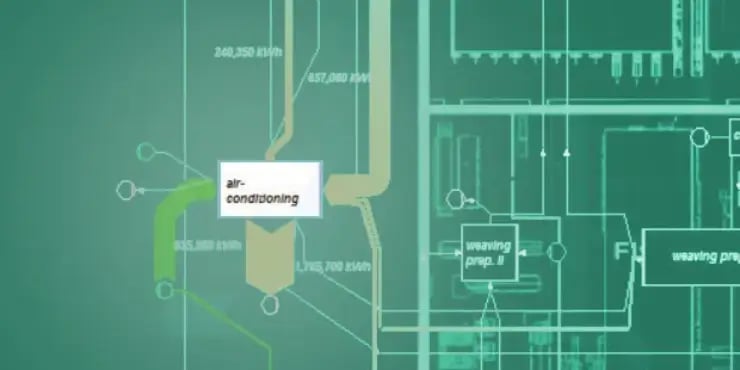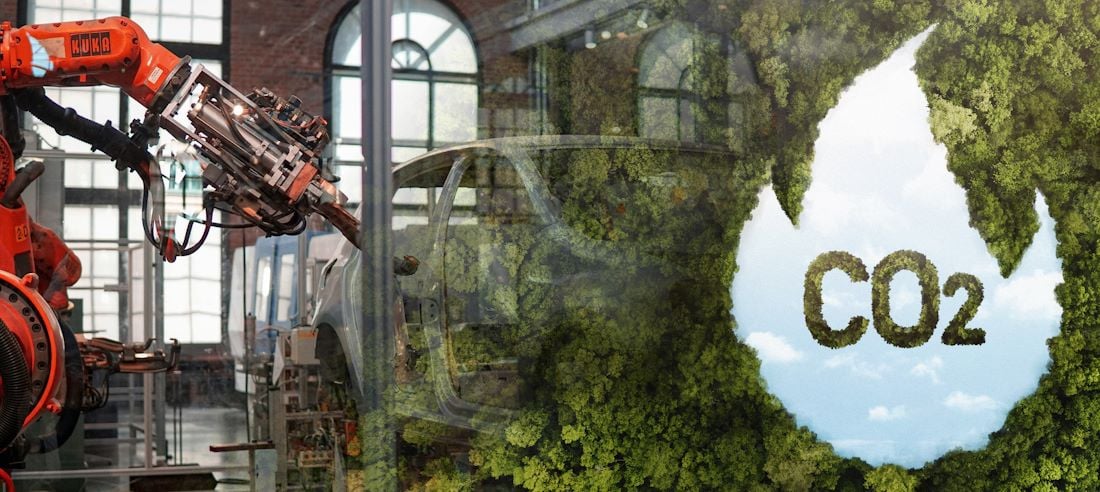Adjust all the details, but don’t forget the big picture. That’s the best conclusion you can draw from analyzing industry’s most stunning cases of energy efficiency improvement. You can’t hear it often enough: getting to know your production processes in a systematic and holistic way is essential. To harvest the full savings potential, all departments need to cooperate, including engineers, accountants and top-level decision makers. And all processes need to be evaluated. Literally all.
Wait a second, though, does all that effort really pay off, you may ask? And you’re not alone with these doubts. But the savings potential from material and energy efficiency is generally underestimated by managers of all kinds. You may be right that your company already runs quite efficiently and profitably. Usually, however, that view isn’t ambitious enough simply because the reference framework is incomplete. What each machine and each department can achieve individually might work pretty well already, but taking the entire system into consideration always finds room for improvement. Always? With systems thinking, a 500% higher resource productivity is possible. Really? Yes, and if you don’t believe me, feel free to read why a 5-Fold Increase in Efficiency is not delusional at all.
Surprisingly, it is not only possible to achieve highly efficient production, but also make it carbon neutral. For free. How? By financing the necessary investments entirely through energy savings. You don’t think so? “Well, you win money by increasing energy efficiency and, once the measures to do so are amortized, you reinvest the ongoing annual savings in renewable energy equipment. It is so simple, and yet so revolutionary.” So I wrote in my article giving you the answers to Why and How the Manufacturing Industry Should Go 100% Renewable Now.
If this seems somewhat highfalutin’ to you, let’s take the concrete example of a textile company in Germany called SWU. Its business is energy intensive and consists of refining high tech filaments and spinning fibers. Altogether, their two production plants consume four gigawatt hours of electricity per year, which in previous years totaled an annual expense of nearly 400,000 euros (roughly 500,000 USD). With the help of material flow analysis, the company identified major sources of inefficiency. Some were easy to fix, others needed a change in the process setup. The easiest improvements were, for instance, adjusting the rotor blades of the cooling equipment and repairing air pressure leaks. Another relatively easy, and surprisingly uncommon, step was improving insulation. Of course, textiles require various processes. Each requires a certain range of temperature. With some processes, this range is extremely narrow, requiring high levels of air conditioning. Steaming the yarn, however, is a process that works in a comparatively wide range of temperatures. That’s why it can be excluded from the temperature-controlled area in the plant, thereby reducing the energy demand for air conditioning enormously. Read more on this and many other measures for Efficient Climate Control on the Factory Floor. If material flow analysis is new to you, I’m sure that you won’t regret informing yourself about the 5 Steps towards Maximum Resource Efficiency: Material Flow Modeling Made Easy.
Energy management has been around for a few decades, but the holistic approaches based on simulation software are relatively new. So is a norm called ISO 50001 that deals with systematic energy management. Read here what the norm is about and who were the first to get certified. And speaking of holistic approaches, why not use the data gathered specifically for achieving resource efficiency in all your company’s departments? How about improving accounting and planning, too? The SWU-example showed how amortization periods for machines are calculated more correctly when you better understand the energy demanded by a process. On this basis, investment decisions can be taken with greater awareness. The key to exact figures is MFCA – material flow cost accounting. MFCA was also standardized a couple of years ago under the ISO 14051 norm. Yes, you knew it, I can provide you with extensive information on that one, too: ISO 14051-Based Material Flow Cost Accounting in a Nutshell.
Apparently, there is no excuse left for not harvesting the full potential for savings. Go out and do it!
Article image edited by Moritz Bühner. Original image taken from the Sankey view of a material flow model, representing SWU textile manufacturing. Read more on that here.





